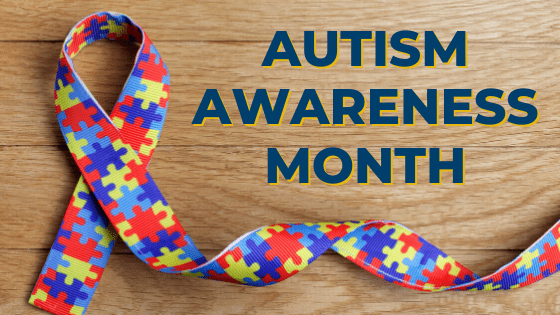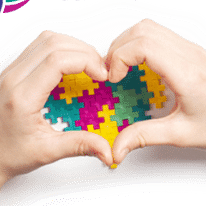- Contact Us
- (908) 874-0417
- Member Login
- Get Listed Now

As April approaches, the world prepares to observe Autism Awareness Month. This month-long observance is dedicated to spreading awareness about Autism Spectrum Disorder (ASD) and promoting acceptance of people with autism.
The origins of Autism Awareness Month can be traced back to the Autism Society, founded by parents and advocates in 1965. The organization recognized the need for greater awareness and support for individuals with autism and their families. In 1970, the Autism Society launched the first National Autistic Children’s week, which later evolved into Autism Awareness Month.
In 2007, United Nations General Assembly established World Autism Awareness Day, which falls on April 2nd every year. It aims to raise awareness about the realities of autism and improve the quality of life of people living with this condition. In 2008, Autism Speaks, the largest autism organization in the United States, launched the first Autism Awareness Month.
Over the years, Autism Awareness Month has become a more comprehensive initiative. Its purpose is to raise awareness and promote acceptance and understanding of individuals with autism. In 2021, the Autism Society renamed the event Autism Acceptance Month to emphasize the importance of inclusion and acceptance of individuals with autism in society.
The global campaign is usually commemorated with various symbols and gestures that have come to represent autism and autism awareness.
The Autism Awareness Ribbon is a symbol of awareness and solidarity, and the multi-colored puzzle pattern represents the complexity of the autism spectrum and the diversity of individuals with autism. However, individuals on the autism spectrum often choose to represent their condition in their own unique way.
On World Autism Awareness Day, April 2nd, it’s not unusual to witness a sea of blue, symbolizing support for those living with autism. The color blue, an emblem of the Autism Speaks’ “Light it Up Blue” campaign, is used to show solidarity and spread awareness of autism.
The puzzle piece, oft seen as a symbol of autism, has evoked mixed responses. While some appreciate its representation of the disorder, others feel it perpetuates the notion of those with autism not being able to fit into societal norms.
The butterfly has been suggested as a replacement for the puzzle piece. The reasoning is that it captures the idea of transformation and symbolizes the beauty of seeing things differently, as well as the importance of continued progress.
These symbols and gestures flood our newsfeeds. Celebs and influencers use their voices to raise awareness. It’s great that we can use social media to raise awareness for causes, but let’s try to take it a step further. Changing your profile picture blue and tweeting #worldautismday won’t make a real difference to those affected by autism and their families. It’s more important for people to take the time to learn what the cause is really about.

Autism, or Autism Spectrum Disorder (ASD), is a neurodevelopmental disorder that affects communication, social interaction, and behavior. Here are some quick facts about autism:
There are many misconceptions about autism, and one of the most significant barriers to acceptance is a lack of understanding. By raising awareness, we can help people to understand the challenges faced by people with autism and the unique strengths they possess.
Another important goal of Autism Awareness Month is to promote early diagnosis and intervention. By raising awareness about the signs of autism and the importance of early intervention, we can help more children receive the support they need to reach their full potential.
When it comes to autism spectrum disorder, early intervention is critical. By receiving a diagnosis and beginning intervention quickly, children have the best opportunity to develop their social, communication, and behavioral abilities. Several types of early intervention programs are available, such as behavioral therapy, speech therapy, occupational therapy, and social skills training. All of which can help children with ASD learn and hone essential skills.
Intervening early for children with ASD gives them a greater opportunity to reach their highest potential, improve their life quality, and eventually lessen their reliance on future support services. Additionally, parents and caregivers are provided with invaluable tools and resources to understand and aid their child’s development, helping them on their journey to success.
As parents of children with autism, you have a unique perspective on the realities of autism and the importance of acceptance. By sharing your stories, you can help to raise awareness and promote acceptance in your communities.
There are many ways you can get involved in Autism Awareness Month. Here are some ideas to get you started:

Social media can be a powerful tool for spreading awareness. Share your experiences and insights about autism on Facebook, Twitter, or Instagram. Use the hashtag #autismawarenessmonth to connect with others passionate about the cause and tag Circle Care Services so we see your story.
Many communities host events and activities to raise awareness about autism during April. Look for events in your area and get involved. For example, you could participate in a walk or run to raise funds for autism research, attend a conference or workshop, or volunteer at a local autism organization.
Schools play a crucial role in promoting acceptance of people with autism. Talk to your child’s school about ways they can support students with autism and promote awareness among students, staff, and parents.
Talking openly about autism is one of the most effective ways to promote acceptance. Start a conversation with friends, family, or coworkers about autism and the importance of acceptance.
Remember, every small action counts. Autism Awareness Month is an important observance that helps increase understanding and acceptance of people with autism. By sharing our stories, advocating for our children, and participating in events, we can work towards a more inclusive and supportive society. Let’s use this month as an opportunity to spread awareness and promote inclusivity in our communities.
Navigating the joys and challenges of parenting a child with special needs is no small feat, but you are doing a fantastic job! At Circle Care Services, we are more than just your ABA provider – we are your parenting partner. We are here to provide encouragement and support throughout your journey. So, celebrate the successes and recognize that you are doing your best. Persevere and have faith in the powerful advocate you are for your child with autism – one day, they will thank you.
If you live in New Jersey and have a child diagnosed with autism, reach out today for a consultation. The staff at Circle Care would love to meet you and be a part of your support network.
Let us be a part of your child’s advocacy team.
|
|
Added By: | |

|
Circle Care Services Family Activities Highland Park, NJ 08904 US |
| View Profile » Contact » | |
